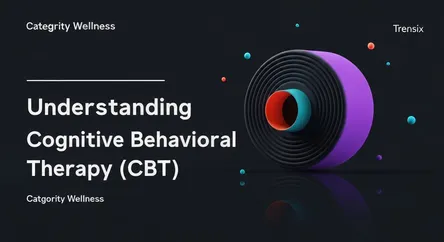Wellness
Understanding Cognitive Behavioral Therapy (CBT)

A look into Cognitive Behavioral Therapy (CBT), a practical, evidence-based approach to improving mental health by changing thought patterns.
What is it?
Cognitive Behavioral Therapy (CBT) is a structured, goal-oriented type of talk therapy that helps people identify and change destructive thinking patterns and behaviors. It operates on the core principle that our thoughts, feelings, and actions are interconnected. A therapist helps you become aware of negative thinking so you can view challenging situations more clearly and respond to them in a more effective way. CBT is used to treat a wide range of issues, including depression, anxiety, and eating disorders, and is typically a short-term therapy focused on present-day problems.
Why is it trending?
CBT's popularity comes from its strong backing by scientific research, making it a highly effective and evidence-based treatment. Many consider it the "gold standard" of psychotherapy because it's a practical, problem-focused approach that often requires fewer sessions than other therapies. Its versatility allows it to be tailored to a wide range of individuals and conditions. A key reason for its trend status is empowerment; CBT equips people with practical, life-long skills to challenge their own negative thoughts and become their own therapists.
How does it affect people?
CBT helps people develop effective coping skills to manage stressful life situations and emotional challenges. By learning to identify and change negative thought patterns, individuals can experience significant relief from symptoms of depression and anxiety, leading to an improved quality of life. The therapy teaches people how to respond to difficult situations with a healthier perspective. These skills are long-lasting, allowing individuals to better manage their emotions and mental well-being long after treatment has ended, helping to prevent a relapse of symptoms.